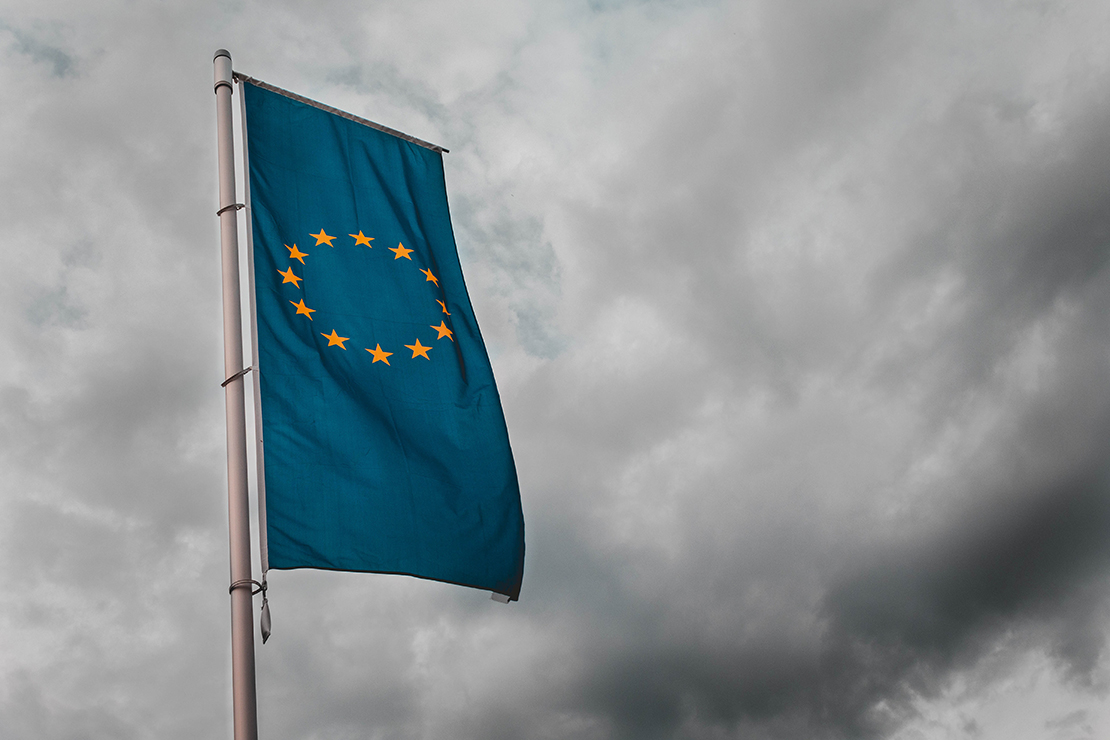Authors

Alejandro Esteso Perez
European integration and enlargement issues, political relations with EU Member StatesAs of 2024, Kosovo passport holders are able to enter the Schengen zone for up to 90 days without a visa, following a long-awaited landmark decision reached by the 27 EU Member States in 2023. This move put an end to a years-long stalemate where Kosovo passport holders were among the few in the Western Balkan region—and also among the few Europeans—that could not enter the Schengen Area visa-free.
Among the 27 Schengen states, 26 were scrapping their visa requirements for Kosovo travellers. Only Spain would not enact the new regime, as it did not recognize Kosovo passports and holders would either way be denied entry into the country—until now. The 6th of January, Kosovo Deputy Prime Minister Besnik Bislimi announced that Kosovo passports would also be accepted by Spain, a decision believed unthinkable that caught observers and the public alike by surprise. In the absence of a public statement from Spanish authorities following Bislimi’s claims, yet with the backing of an online source from the European Commission’s Directorate-General for Home Affairs (DG HOME), this was later confirmed to local Spanish media by an official at Spain’s Foreign Ministry and also by the Minister himself.
Madrid’s recognition of Kosovo passports marks an immensely significant turn in its approach towards Prishtina, which has traditionally been based on an ‘out of sight, out of mind’ policy wrapped in a largely obstructionist demeanour. With this decision, Spain is now joining the universe of non-recognizing countries that do recognize Kosovo-issued passports, as are Greece, Slovakia, Ukraine and Bosnia and Herzegovina, among others. The long-term impact of this sudden shift remains to be seen but, as an old Spanish proverb goes, ‘it is never too late if the outcome is good’.
‘More Catholic than the Pope’ no more?
Since Kosovo’s independence, Spain has routinely engaged in episodes of diplomatic clumsiness and uncomfortable standoffs with Prishtina—taking a toll on its image on not few occasions, spanning from European summits to football matches. While the six-month presidency of the EU Council, which Spain held over the second half of 2023, offered a good chance for redemption, Madrid decided to pass this time and wasted the overall chance to showcase its engagement with the Western Balkans, and particularly with Kosovo. The opportunity of hosting an EU-Western Balkans Summit was outsourced to Brussels, whereas the European Political Community (EPC) Summit was held in Granada amid much fanfare. It was in this framework that Spanish Prime Minister Pedro Sánchez, for the first time in an official setting, got to greet and welcome Kosovo President Vjosa Osmani to Spain.
This handshake, probably just a protocolar sign of implicit acknowledgement rather than a sign of hope for recognition, became a new addition to the list of Sánchez’s few recent cordial encounters with Kosovo Prime Minister Albin Kurti. Both leaders met twice in 2022, and a year later in Málaga (Spain) in the framework of the 2023 Congress of the Party of European Socialists.
However positive this timid political rapprochement could seem, the rather unorthodox way in which the public received the news that Spain would recognize Kosovo passports—firstly paraded by Kosovo proudly and loudly, and then discreetly admitted by Spain—tells us that Madrid’s decision aimed to be deliberately taken through the back door. Right at the time when its EU Council presidency had come to an end and the EU’s policy spotlight was moving away, Spain chose for the public to know only in 2024. Considering Spain’s Kosovo paranoia, where even the slightest acknowledgement is feared, this strategy succeeded in cushioning the potentially higher impact the news could have had, had Madrid decided to inform of this decision only a week earlier.
Spain has arrived at a point of political reckoning. In the words of Spanish Foreign Minister José Manuel Albares, “Spain will never be an obstacle for the dialogue between Belgrade and Prishtina, or for the dialogue between Prishtina and the EU”. This brings Madrid to a more comfortable and relaxed position, where it can let go of the pressure of holding unreasonably harsher stances than Serbia—which does recognize Kosovo travel documents—that gave it no specific benefit, and where it can still pursue a policy coherent with its political stance without coming off more Catholic than the Pope. This, ultimately, releases Spain of a burden that was not pragmatic or sensible in the long run.
The Spanish political spectrum, although growingly polarized, has somehow managed to hold a relatively unified view of rejection and scepticism towards this decision. While the right-wing opposition has openly criticized the move for arguably threatening territorial integrity and justifying Catalan and Basque independence movements—a view that is also shared among certain sectors of the left—minor conspiracy-driven radical left circles have accused the government of sucking up to NATO’s and Washington’s dictates. Prime Minister Sánchez’s government is, however, no stranger to spearheading and pushing through policy decisions that are decidedly unpopular at first, but that can eventually contribute to public interest—as is currently happening with an ongoing draft Amnesty Law for convicted Catalan pro-independence leaders. The recognition of Kosovo passports could well be one of these instances, but the shyness of Spanish authorities in openly addressing this matter leaves plenty of room for doubts.
Three potential scenarios
While the main and most important outcome of Madrid’s passport recognition is that Kosovo travellers and tourists will be able to enter and move around Spain in a safe, secure and officially acknowledged way, the move also marks a momentous political gamble for the Spanish government. As of today, three main potential scenarios on what could follow—along varying degrees of likelihood—can be traced.
The first scenario, a rather likely one, involves that Spain will continue to pursue its disengaged and antagonistic approach towards Kosovo despite passport recognition. This hypothesis holds that Madrid’s decision to accept Kosovo-issued passports was made upon a strictly technical and administrative rationale in the context of a brand-new visa-free space for Kosovo travellers. The actual enactment of passport non-recognition would have posed many operational challenges for Spanish authorities, which de facto would have needed to reinstate intra-Schengen border control. In addition to this, venturing into Spain via another Schengen country would have left Kosovo passport holders effectively unprotected, potentially leading to administratively and diplomatically sensitive situations that Spain preferred to avoid overall. Ultimately, Madrid reached the reckoning that passport non-recognition did not bring any particular benefit, and that its strict policy was further undermining its credibility and constructiveness vis-à-vis the Belgrade-Prishtina dialogue—and towards freedom of movement in general.
The second scenario, less likely but plausible, contemplates that Spain will wish to build upon this breakthrough and convey further signs of rapprochement towards Prishtina. This hypothesis draws from the same rationale as the first scenario, namely that the technical and operational toll for Spain of passport non-recognition would have been costlier—and surely fallible—in the long run and was not worth the inconvenience. This scenario, however, considers that the decision was strategically used as an experimental subject to test the waters across the Spanish domestic political and public opinion in preparation for potential further steps—perhaps through the opening of (informal) bilateral diplomatic channels or, even, the establishment of a liaison office in Prishtina mirroring those of Greece, Romania and Slovakia.
The third and most unlikely scenario involves that Spain will move on to declare its full and unconditional recognition of Kosovo. Chances are low that this could happen in either the short or long run, especially given Madrid’s historical narrative of refusal to breaches of International Law, and considering its repeated argument that a legally-binding agreement between Serbia and Kosovo should come before any move towards recognition.
Spain enjoys a broad window of opportunity to justify its steady rapprochement to Kosovo, of which passport recognition is an undeniable first step. Should Madrid wish to pursue the second scenario, which would be an ideal follow-up, it should now work towards minimising the risk of domestic upheaval through a policy of gradual acknowledgement of Kosovo as an international subject detached from Serbia, while strengthening its support for the Western Balkans’ EU integration process. Eventually, while accepting the unlikelihood of full recognition, Madrid should aspire to position itself as a constructive non-recogniser that holds diplomatic, commercial and cultural ties with Prishtina.
Passport Hangover: What’s next after Spain’s Kosovo breakthrough?

 Download PDF
04/03/2024
Download PDF
04/03/2024Share article
Related Espresso Insights
March 4, 2024
Espresso.Insights
Passport Hangover: What’s next after Spain’s Kosovo breakthrough?

January 16, 2023
Espresso.Insights
Recognized but not supported: Hungary's stance on Kosovo's EU bid

Latest Publications
April 24, 2024
Policy Analysis
Tracking Kosovo's Commitment: Monitoring Adherence to the Venice Commission Rule of Law Checklist in ...
April 8, 2024
Policy Analysis
Reflecting on the Third Year of Kurti II: Setbacks and Achievements in Rule of Law, Public Administr ...
March 22, 2024
Policy Analysis



